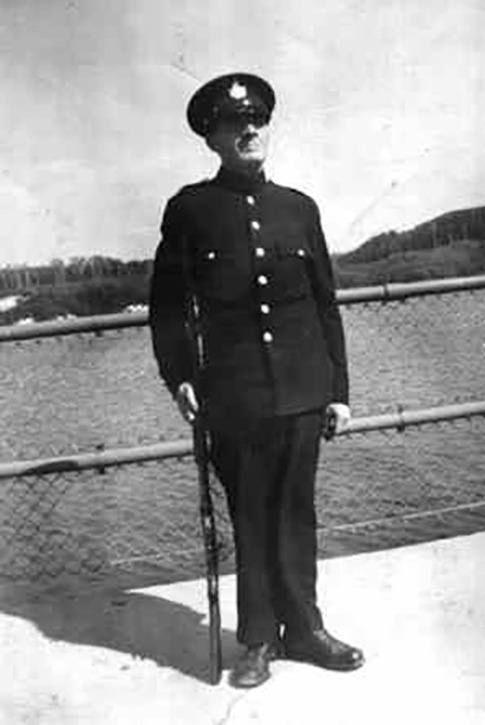By Moush Sara John
Courtesy of the Stettler Independent
With the 100th anniversary of the Battle of Vimy Ridge commemorated today, a lot of veterans’ families are remembering their loved ones.
The battle was a defining moment in Canada’s independence, which makes it even more momentous.
Castor resident Beth Elhard remembers her grandfather, Archie MacDonald fondly.
“I know his story as it was told to me through the voice of my grandmother. My children and grandchildren will know his story through my voice,” Elhard said. “I just ask that they remember him and the many others who fought at Vimy Ridge. Many never came home. My grandfather did. A changed man forever.”
Elhard said that she didn’t know her grandfather very well.
“Distance separated us in my growing up years and on our annual family visits when I was young, I only saw him for what he was – a funny person with a quirky sense of humour,” Elhard added. “Physically he was small of stature, with a no-nonsense jawline and a feisty demeanour.”
Later, when Elhard became a young adult, she would notice that he was given to moods of silence and that when one looked close, they could see sadness deep in his eyes.
“He would be surly and often, and when we grandchildren would get rowdy or noisy he would often put his hands to his ears and then he would yell at us to get out or be quiet,” Elhard recalled. “One time I had got up in the night to get a drink of water and he was sitting in the dark in an armchair quietly weeping, a Kleenex in his hand. Some instinct in me made me go and curl up on his knee. I saw him in a different way after that night.”
Of Scottish ancestry, MacDonald was orphaned at the age of 10.
For a time he lived with an aunt and then by the age of 12 he was on his own, working at any job to get by.
In time he became a ‘railroader’, working for the Ontario Northern Railway (ONR), first as a construction worker, laying the rails, then working his way up to brakeman.
Times were tough in the rugged bush country of northern Ontario in 1912.
But MacDonald met the love of his life, Elhard’s grandmother.
“My grandmother had come over from England two years before, arriving with her mother, in the middle of a -40 degree Celsius January morning, in a summer dress and felt slippers,” Elhard added. “They met, married and she gave him the love he had missed most of his life.”
In time their family would grow to eight children.
They struggled with poverty and forest fires and the loss of a baby, but their love for each other was strong and together they worked hard for a good life, according to Elhard.
“But the world would change on July 28th, 1914, when Archduke Franz Ferdinand of Austria was assassinated. Britain entered the war when Germany attacked Belgium and Luxembourg and headed for France,” Elhard said.
When Britain declared war, it meant that Canada was bound to enter the war.
Canada entered the war on Aug. 4th, 1914.
“My grandmother worried about her siblings left in ‘the old country.’ If Britain should be attacked and occupied, she knew that grandfather would soon enlist,” Elhard noted. “He was eager to join, but to leave his wife and two little children would mean more hardship for his family.”
According to Elhard, all around men were signing up to fight in a war far away and her grandfather felt it was his duty to go.
Elhard recalled that around that time influential people were shaping young minds and Sir Wilfred Laurier told Canadians, “It is our duty to let Great Britain know and to let the friends and foes of Great Britain know that there is in Canada but one mind and one heart and that all Canadians are behind the Mother Country.”
On a cold April 19th, 1916, MacDonald answered the call for his country.
He joined the 228th Northern Fusiliers Battalion, CEF (Canadian Expeditionary Force) out of North Bay, Ontario.
In October he sailed for England with the Canadian Railway Troops.
Later in England the 228th would be renamed the 6th Battalion.
From England they went to France where they prepared for the war zone.
“My grandfather would not be fighting, he would be doing what he knew best and that was building railway lines to the front,” Elhard said.
editor@stettlerindependent.com



